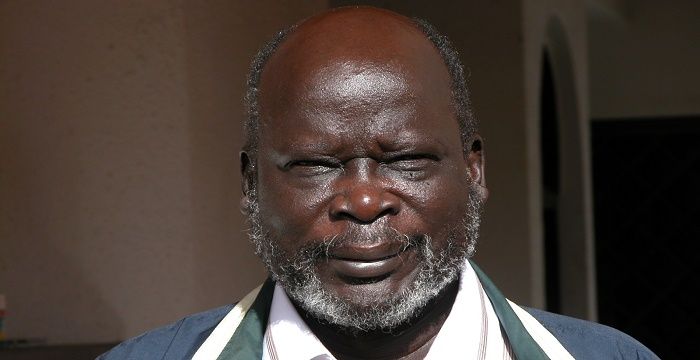Sylvester Oluoch
When faced with great difficulties people look up to their parents or grandparents or even great grandparents. South Sudan leadership, and especially President Salva Kiir, needs to take a hard look at the stunted fortunes of a nation of great promise that the South Sudan is and ask the question: “What would colonel John Garang De Mabior do a decade on?”
Progress of a nation cannot be one sided. The mindset that “as long as I get what I want, I care less about what everybody else wants” leads to the ruins of nations. South Sudan has more than enough resources to go round. Vast tillable fertile land – 90 percent of South Sudan land mass is arable, minerals, water resources and indigenous forests.
One of the best steps Col. Garang took in laying the groundwork for secession of South Sudan from the Sudan was to define;
“The problem of the Sudan”. He said the problem of the Sudan was that Sudan was defined as “The Islamic Arabic Republic of Sudan.” Therein lay the problem of exclusion of the Christian ethnic black. Essentially Southerners were not “Nationals” of the Sudan.
The understanding that the Sudan held the Southerners illegitimate right from the definition of the nation at its inception clearly defined the path to separation as a lasting solution. To get to the true basis of the problem, Col. Garang used problem delimitation approach.
To arrest the unending squabbles, continuous brawls and running battles that have become lasting civil unrest, it is inevitable that South Sudan, the African Union and the African people ask the question: what is the problem of South Sudan? This is a simple question whose answer is as compound as it is complex.
The problem of South Sudan is the mindset of putrefaction. The solution lies in disabusing the minds of the South Sudanese people.
The answer rests in first understanding that the unabating civil war has its roots in the warlike culture that was fashioned during the struggle to yank off the North.
The solution will have to address the mindset that disputes must be addressed through violent resistance. This begins by recognizing its impact of their livelihood through impact on food adequacy, national security, infrastructure development, direct foreign investment, and literacy levels. Fixing the Sudan will take a ground-up approach.
Food Adequacy: The South Sudanese must first understand that they have enough land to feed them and be left with much for export. This should guide them in the direction of creating wealth as opposed to “robbing Peter to pay Paul” attitude. The citizenry needs to focus on production instead of the destructive habit of fighting over the “little” they have.
National Security: This is the only role the government needs to play fully. Once the country is safe for business, individuals from more advanced nations will come to the country and change its fortunes, particularly with skills transfer.
Infrastructure Development: infrastructure plays a pivotal role in the development of a nation. Safety and security underpin infrastructure advancement. The South Sudanese need to understand that if they make their country hostile, they hinder progress. They only need to look at Kenya whose progress has been fueled by a welcoming attitude towards immigrants.
Direct Foreign Investment (DFI): Every country that attracts DFI progresses faster than countries that do not. The government has to work on the mindset of its citizens to be more accommodative and more embracing of work opportunities.
Literacy levels: Most young nations struggle with education systems. South Sudan should develop systems that teach reading and writing, but more importantly, right thinking.
To change the fortunes of the South Sudan, there is need to address that question – what is the problem of the South Sudan? The answer is wrong thinking. The solution then becomes simple: – right thinking. Col. John Garang De Mabior would delimit the problem to wrong thinking then set up village councils and classrooms that educate his people to think right.

